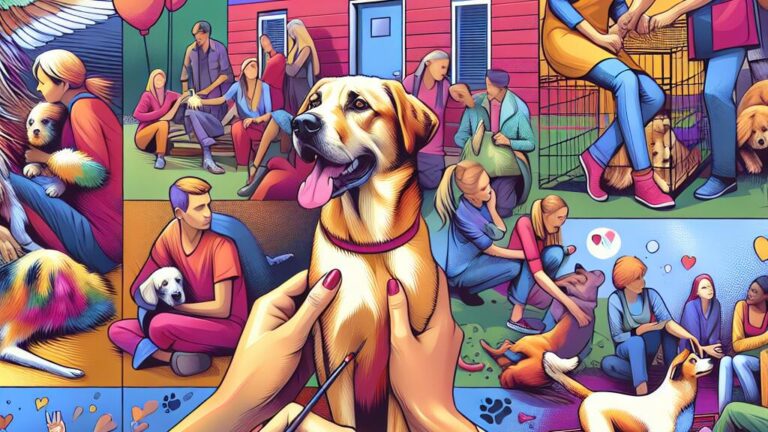Rescue Puppies for Adoption
Rescue Puppies for Adoption
Health Care Considerations
Welcoming a rescue puppy into your life is like opening the door to a whirlwind of joy and companionship, yet it also ushers in a realm of essential health care duties that can’t be overlooked. Picture this: regular veterinary check-ups are not just routine—they’re pivotal to ensuring your furry friend stays sprightly and vibrant. Think about vaccinations; they’re not merely shots but critical shields against those pesky diseases lurking around, ready to pounce on your pup’s well-being. Starting off with an established vaccination schedule? That’s the golden ticket for paving the way toward countless years of shared adventures and happiness.
But wait—there’s more! Beyond those vital vaccines lies a whole spectrum of health care needs clamoring for attention. Grooming sessions become playful rituals, dental care transforms into bonding moments, and parasite prevention becomes an ongoing mission we undertake together. And let’s talk nutrition! Crafting a balanced diet specifically suited to your puppy’s age and breed isn’t just advisable—it’s essential for fostering robust growth and vitality. Don’t forget about spaying or neutering; discussing this with your vet isn’t merely practical—it’s part of being a conscientious pet parent who cares deeply about their companion’s long-term health prospects. By prioritizing these health considerations, you’re not just raising any puppy—you’re nurturing a lively soul destined to enrich every corner of your life with boundless love and energy!
Vaccinations and Regular Vet Visits
Ensuring your rescue puppy gets those crucial vaccinations? Absolutely essential for their health and happiness! Puppies usually need a whole series of shots to shield them from nasty diseases like parvovirus, distemper, and rabies—yikes! Sticking to the vaccination schedule laid out by your veterinarian isn’t just a good idea; it’s key in fortifying that little immune system and slashing the risk of infections. Regular vet visits are more than just appointments—they’re golden opportunities for timely vaccinations and thorough health check-ups.
Think about routine check-ups as vital checkpoints in tracking your puppy’s growth journey. With each visit, veterinarians can spot potential health hiccups early on through careful physical exams while dishing out advice on keeping that wagging tail healthy and happy. Plus, these regular encounters help weave a bond between your pup and the vet—a relationship that makes future treatments way less nerve-wracking for both you and your furry companion. Highlighting how critical those vaccinations and vet visits are lays down the groundwork for a long, vibrant life together with your new best buddy!
| Vaccination | Age to Start | Frequency | Target Diseases |
|---|---|---|---|
| DHPP (Distemper, Hepatitis, Parvovirus, Parainfluenza) | 6-8 weeks | Every 3-4 weeks until 16 weeks | Distemper, Parvovirus, Adenovirus |
| Rabies | 12-16 weeks | Once, then annually or every 3 years | Rabies |
| Bordetella (Kennel Cough) | 8-12 weeks | Every 6-12 months | Kennel Cough |
| Lyme Disease | 12 weeks | Annually | Lyme Disease |
| Leptospirosis | 12 weeks | Annually | Leptospirosis |
Nutrition for Your Rescue Puppy
Choosing the right diet for a rescue puppy is crucial—it’s the foundation of their health and growth journey! You see, puppies aren’t just miniature adults; they have unique nutritional needs that set them apart. Their little bodies are in a constant state of development, craving an intricate balance of proteins, fats, carbohydrates, vitamins—oh my!—and minerals to thrive. When shopping for puppy food, make it your mission to find high-quality options where meat reigns supreme as the main ingredient. And don’t forget: it should meet the rigorous standards established by the Association of American Feed Control Officials (AAFCO). It might be wise to touch base with a veterinarian too—they can steer you toward brands and formulations that fit your pup’s age, breed specifics, and any quirky dietary requirements.
Now let’s not overlook feeding routines! They’re pivotal in shaping your puppy’s growth and well-being. A consistent feeding schedule can weave comfort into their day-to-day life—a sense of security wrapped up in routine. In those early days? Think smaller meals scattered throughout the day rather than overwhelming them with one or two hefty portions. As time marches on and your furry friend matures gracefully into adulthood, you’ll want to transition gradually to adult dog food at just the right moment—not too soon but not too late either! Keep an eye on their weight and overall condition because these observations are golden keys for tweaking their diet when needed—after all, every pup has its own story waiting to unfold!
Choosing the Right Food
Choosing the right food for a rescue puppy—oh, what a pivotal journey to embark upon! This delightful endeavor not only shapes their health but also weaves happiness into their very being. You see, puppies are like little sponges of energy and vitality; they demand a diet meticulously crafted for their unique developmental phase. Imagine the vigorous demands of growing bodies needing an abundance of protein and calories to fuel their leaps and bounds!
As you scour the market for that perfect blend, keep your eyes peeled for high-quality commercial dog food where real meat proudly claims its spot as the inaugural ingredient. And let’s not forget those essential nutrients: omega-3 fatty acids, which work wonders on that luscious coat of theirs, alongside DHA—a silent hero in nurturing sharp minds.
But wait! Before diving headfirst into this culinary adventure, don’t hesitate to seek wisdom from a veterinarian who can tailor advice specifically suited to your puppy’s age, breed—and any quirky health quirks they might have up their furry sleeves. After all, some pups come with sensitivities or allergies that could turn mealtime into a minefield if you’re not careful. That’s where grain-free or limited-ingredient diets might just save the day.
In this whirlwind of choices and considerations, remember one crucial thing: keeping an eye on your pup’s weight and energy levels is paramount! It’ll guide you through the maze of nutritional adequacy as you determine whether your chosen fare truly meets those playful little needs.
Common Behavioral Issues in Rescue Puppies
Rescue puppies often come with a backstory, one that can significantly color their behavior. Many have endured neglect or faced trauma, leaving behind shadows of anxiety, fear, or even aggression. These issues might spill out in unexpected ways—like relentless barking at the slightest noise, cowering away from unfamiliar faces, or wrestling with the challenge of house training. Grasping the roots of such behaviors becomes essential—not just for the puppy’s welfare but also for keeping a harmonious household.
Tackling these hurdles demands a blend of patience and unwavering consistency. Training approaches steeped in positive reinforcement can work wonders to soothe anxious souls and foster trust between pup and owner alike. Furthermore, diving into socialization activities opens doors for these furry friends to learn how to navigate interactions with both humans and fellow critters gracefully. With dedication and time invested, many rescue pups can transcend their behavioral battles—transforming into delightful companions that fill lives with joy!
Understanding and Addressing Challenges
Welcoming a rescue puppy into your life can be an adventure fraught with unexpected hurdles, some of which might not leap out at you right away. These pups often carry the invisible scars of trauma or neglect—echoes that manifest as anxiety, fear, or struggles in social situations. To truly help them flourish, it’s paramount to grasp these challenges fully and craft an environment where they feel safe and cherished. Establishing a consistent routine can work wonders in soothing their anxious hearts; patience and unwavering consistency are the bricks from which trust is built over time.
Tackling behavioral issues isn’t just about reacting—it demands a proactive mindset. Enlisting the support of a professional trainer can prove to be a game-changer when dealing with concerns like separation anxiety or resource guarding that sometimes rear their heads unexpectedly. Using positive reinforcement techniques acts like magic dust—encouraging good behavior while gently nudging away those less desirable traits. Moreover, immersing your puppy in controlled interactions with other dogs and humans can significantly bolster their confidence and adaptability skills! By cultivating this nurturing atmosphere, you’re not only aiding healthy growth but also deepening the precious bond between you and your new furry friend.
- Create a structured daily routine to provide stability and reassurance.
- Invest time in obedience training using positive reinforcement methods.
- Gradually introduce your puppy to new environments and experiences.
- Monitor social interactions to ensure they are positive and non-threatening.
- Be patient and allow your puppy to progress at their own pace.
- Celebrate small victories to reinforce your puppy’s confidence.
- Maintain open communication with a professional trainer for ongoing guidance.
The Benefits of Adopting a Rescue Puppy
Welcoming a rescue puppy into your home isn’t just about finding a furry friend; it’s an adventure that ripples through the very fabric of family life. These pups, with their backstories often tinged with hardship, possess an extraordinary zest for existence—one that can transform your household in ways you might never have imagined. Families frequently discover that the presence of a spirited little rescuer injects fresh energy and joy into everyday routines, knitting closer ties among everyone under one roof.
But wait—there’s more! The emotional rewards from adopting such a pup are nothing short of profound. Many people find themselves enveloped in a deep sense of purpose as they offer this four-legged soul another shot at happiness. The unwavering love and loyalty these dogs shower upon their humans can uplift spirits and bolster mental health in remarkable ways. Plus, nurturing a rescue puppy cultivates not only responsibility but also compassion—a beautiful exchange that enriches lives on both sides of the leash!
Companionship and Emotional Support
Rescue puppies—oh, what a whirlwind of joy and purpose they unleash upon their adoptive families! These little bundles of fur don’t just wag their tails; they weave intricate threads of connection with their humans, forging bonds that run deep. In moments when loneliness creeps in like an unwelcome shadow, the presence of a rescue pup shines bright, offering companionship that soothes the soul. With each affectionate nuzzle and gleeful bark, these loyal companions serve as reminders of life’s simple pleasures—the joys tucked within everyday moments shared.
But wait—there’s more! Beyond mere companionship lies an extraordinary source of emotional support during life’s tumultuous storms. Their playful antics and warm-hearted nature create a delightful antidote to stress and anxiety—a calming balm for frayed nerves at home. And let’s not overlook the rhythm established by caring for such spirited creatures; it bestows routine and structure upon those grappling with challenges like depression or other mental health hurdles. Adopting a rescue puppy doesn’t merely alter the trajectory of one furry life; it ripples outwards, casting waves of positivity on the emotional landscape of its human counterpart.
Success Stories of Rescue Puppy Adoptions
In the tapestry of family life, countless households have woven their narratives with the vibrant threads of rescue puppies. Take, for instance, a touching tale that revolves around a couple who opened their hearts and home to a timid little soul named Max—an abandoned puppy whose initial uncertainty about his new environment painted a poignant picture. But oh, how love and patience worked their magic! Slowly but surely, Max blossomed into not just a pet but an irreplaceable member of the family fabric.
Then there’s Bella—a spunky Labrador mix bursting with exuberance, her very presence like sunshine breaking through clouds. Rescued from the confines of a local shelter, she didn’t take long to find her groove in this new chapter of life. Almost instantly, Bella transformed into more than just a companion; she became a beacon of hope as a therapy dog during her owner’s trials and tribulations. These heartwarming accounts serve as testaments to the profound influence that rescue pups can have on those lucky enough to adopt them—infusing homes with joy and camaraderie while illuminating the incredible rewards inherent in granting these furry friends another shot at happiness.
Inspiring Tales from Happy Owners
In the tapestry of adoptive families, countless heartwarming tales emerge, each one a vivid testament to the joy and metamorphosis that rescue puppies weave into the fabric of their lives. Take, for instance, a family who shares their journey with Max—a once-timid puppy whose shyness seemed to wrap him in an invisible cloak. Yet, after just a few months nestled within loving arms, he unfurled like a vibrant flower in bloom! Daily jaunts through sun-dappled parks became his playgrounds of self-discovery; now he bounds toward visitors with exuberant tail wags and an infectious zest for life.
Then there’s another couple—dedicated volunteers at their local animal shelter—who find profound fulfillment not only in service but also in nurturing Bella, their adopted bundle of fur. To them, Bella is more than just a pet; she’s a fountain of unending love and laughter! Despite her early behavioral hurdles—a tricky dance they navigated with patience and training—they’ve forged bonds that shimmer under cozy evening cuddles filled with playful mischief. Each shared moment deepens their connection, illuminating how dramatically a rescue puppy can transform emotional landscapes and enrich lives beyond measure.
Conclusion
Embracing the idea of adopting a rescue puppy is an exhilarating leap—it’s not merely about welcoming a new furry friend into your life; it’s an adventure steeped in emotional transformation. The unfolding tale of integrating a rescue pup into your home often unveils layers of growth and understanding, weaving together the lives of humans and animals in ways you might never have imagined. Each little bundle of joy arrives with its own quirky personality and backstory, ready to sprinkle unexpected richness throughout your daily existence. When you create that nurturing sanctuary, these pups can truly flourish, mending the scars left by their pasts.
But wait—there’s more! The ripple effects of bringing a rescue puppy into your world are profound, extending far beyond mere companionship. Many who take this heartwarming plunge discover an uptick in happiness and fulfillment as they forge an unbreakable bond with their newfound pal. These loyal companions do so much more than just chase away loneliness; they instill a sense of responsibility that breathes purpose back into everyday life. By opting to adopt rather than shop for pets, you’re also playing a pivotal role in addressing the heartbreaking issue of homeless animals while fostering a community woven together by compassion and care. It’s quite the journey—a wild ride worth every wagging tail!
FAQS
What should I think about before bringing a rescue puppy into my home?
Ah, the decision to adopt a rescue puppy! It’s not just about snuggles and wagging tails. First and foremost, reflect on your lifestyle—are you a busy bee or more of a couch potato? Consider where you live; is it spacious enough for playful romps, or do you dwell in cozy quarters? And let’s not forget time—how much can you dedicate to training and nurturing this furry bundle of joy? Also, weigh your resources; are there funds available for vet visits, quality grub, and maybe even some behavioral classes down the line?
How can I guarantee my rescue pup stays healthy as a horse?
To keep that little furball in tip-top shape, make sure to book regular check-ups with the vet. Don’t skimp on vaccinations—those shots are key! A balanced diet is non-negotiable too; think high-quality puppy chow that ticks all their nutritional boxes. Remember: those routine visits aren’t just bureaucratic—they’re essential for catching any sneaky health issues before they become big problems!
What kind of food should I feed my new furry friend?
The right fuel for your rescue pup hinges on several factors—their age (puppyhood is different than adulthood!), size (tiny tots have distinct needs), and any special health considerations they might bring along from their previous life. Opting for premium-quality puppy food that adheres to their nutritional guidelines is crucial. For personalized recommendations tailored specifically to your pup’s unique situation, don’t hesitate to consult with your veterinarian.
What sort of behavioral quirks might pop up when raising a rescue puppy?
Oh boy! When adopting from rescues, be prepared—you may encounter an array of common behavioral challenges like anxiety or fearfulness lurking beneath that adorable exterior. Potty training could also turn into quite the adventure! Understanding where they come from can shed light on these behaviors while consistent training provides the framework needed to help them feel secure.
Can welcoming a rescue pup into my life enhance my mental well-being?
Absolutely! Bringing home a rescue dog isn’t merely about companionship—it’s an emotional lifeline wrapped in fur! This bond has remarkable powers; it can ease stress levels dramatically while combating loneliness and anxiety like nothing else. Who knew such tail-wagging love could pack such profound benefits for our mental health?







